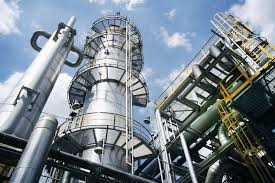

Topsoe, a specialist in energy transition technology, has successfully secured its inaugural sustainable aviation fuel (SAF) project in China. This achievement comes as they’ve been chosen to provide their HydroFlex technology to a SAF producer based in Guangxi.
Guangxi Free Trade Zone Hongkun Biomass Fuel Ltd (Guangxi Hongkun Biomass) will utilize this technology to process 300,000 tonnes per year of feedstock into renewable fuels. Construction of the SAF production plant is slated to commence in May 2024, with SAF production expected to commence in the initial months of 2026.
Elena Scaltritti, Chief Commercial Officer at Topsoe commented on the development, “This agreement marks a significant milestone in offering an alternative to traditional jet fuel in this region and contributes to our ongoing endeavors to support global decarbonisation.”
HydroFlex technology converts various feedstocks such as vegetable oils, animal fats, used cooking oils, and biocrude from waste and biomass into gasoline, jet fuel, and diesel.
“Following a thorough selection process, we are confident in Topsoe’s ability to provide robust support to Hongkun in the realm of bio-aviation fuel production,” mentioned Jiaming Liu, General Manager, Guangxi Hongkun Biomass.
Aviation plays a vital role in the global economy, supporting around $3.5 trillion (4.1%) of the world’s GDP while accounting for 3% of global carbon dioxide (CO2) emissions. A study by Deloitte titled ‘SAF in China’ predicts that as other sectors decarbonize, aviation’s contribution to global emissions could rise to 22% by 2050.
On average, SAF can reduce emissions by up to 80% according to an industry study. IATA forecasts the most significant growth in passenger numbers to occur in the Asia Pacific (APAC) region, with the Chinese domestic passenger market comprising 18.9% of global passengers in 2021.
Starting 2011 China has executed numerous commercial cargo and passenger flights using SAF, leading to Airbus signing a Memorandum of Understanding with the China National Aviation Fuel Group to collaborate on SAF development.
If China’s aviation sector aligns with IATA’s 5.2% SAF target, SAF demand in China could reach three million tonnes per year by 2030. Additionally, if feedstock is fully converted to SAF, the country’s supply could exceed 19 million tonnes per year by 2030.
India is undergoing a significant influx of urban migration and a reclassification of rural areas,…
India’s quest toward green hydrogen economy received a significant boost with a strategic MoU between…
A new report by S&P Global has revealed that India’s growing biofuels industry is emerging…
In a significant breakthrough for India’s renewable energy and dairy sectors, dairy major Amul has…
Renewable energy conglomerate Anaergia Inc, through its subsidiary, Anaergia S.r.l., entered into a contract with…
Reliance Industries Ltd (RIL) Chairman Mukesh Ambani has announced a massive ₹75,000 crore investment in…